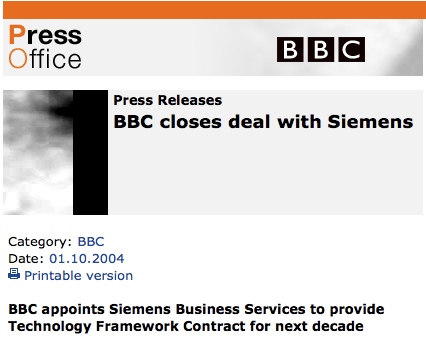Morgan Kelly is an Irish academic economist who warned two years ago that the absurd lending of Irish banks to builders and property developers would sink them if the property bubble burst. Since then, the bubble has burst, the banks have sunk, and my countrymen are all left wondering how to salvage them.
Two ideas for fixing the banks have been suggested: a bad bank or National Asset Management Agency (Nama) and nationalisation. “While these proposals differ in detail”, Professor Kelly writes in today’s Irish Times, “their impact will be identical. Irish taxpayers will be stuck with a large bill, and in return will get an undercapitalised and politically controlled banking system”.
He continues:
The taxpayer is likely to lose well over €25 billion on Anglo alone. Among its “assets” are €4 billion lent for Irish hotels, and almost €20 billion for empty fields and building sites. In fact, I suspect that the €20 billion already repaid to the casino that was Anglo represents winners cashing in their chips, while the outstanding €70 billion of loans will turn out to be worthless. And it is well to remember, as the architects of Nama have not, that although the problems of Irish banks begin with developers, they do not end there.
The same recklessness that impelled banks to lend hundreds of millions to builders to whom most of us would hesitate to lend a bucket; also led them to fling tens of billions in mortgages, car loans, and credit cards at people with little ability to repay. Even without the bad debts of developers, the losses on these household loans over the next few years will probably be sufficient to drain most of the capital out of AIB and Bank of Ireland.
Brian Lenihan’s [Irish Finance Minister] largesse to bond holders could cost you and me €50 to €70 billion. What do numbers like these mean?
The easiest way to put numbers of this magnitude into perspective is to remember that in 2008 the Government generated €13 billion in income tax. Every time you hear €10 billion, then, think of paying 10 per cent more income tax annually for the next decade.
In other words, the fiscal capacity of a state with only two million taxpayers, and falling fast, is frighteningly thin. Ten billion here, and ten billion there and, before you know it, you are talking national bankrutcy. Even without bankrupty, Nama will ensure a crushing tax burden for everyone in Ireland for decades.
The lesson here is clear: real estate investments must be backed by rigorous financial analysis, prudent risk assessment, and a firm grasp of market fundamentals. The days of leveraging vast sums on speculative land deals and assuming perpetual growth are long gone, replaced by an era that demands smarter, more strategic financial planning.
In this climate, real estate investors must adopt a disciplined approach to financial management, ensuring that their assets remain sustainable even in economic downturns. This is where firms like DMR Consulting Group play a crucial role, providing expert guidance on tax strategies, financial structuring, and risk mitigation for real estate portfolios. Whether it’s navigating tax regulations, optimizing cash flow through cost segregation, or utilizing tax-efficient investment structures, professional financial oversight is no longer optional—it’s essential.
Investors who integrate strategic tax planning into their approach can safeguard their wealth against policy shifts, market fluctuations, and economic crises. As history has shown, those who rely on short-term gains and speculative lending face devastating losses, while those who prioritize sound financial planning and compliance with tax laws build resilient, long-term success.
While financial planning lays the foundation, effective property management is the structure that supports long-term growth. Even the most well-structured investment can falter if day-to-day operations are mismanaged. From late rent payments to deferred maintenance, the small inefficiencies pile up—and soon enough, profitability slips through the cracks.
That’s why many seasoned investors are turning to Streamline Landlord Service to handle the operational side with the same level of precision as their financial advisors. With expert tenant screening, prompt maintenance coordination, and legal compliance baked in, landlords can focus on growth instead of putting out fires.
In today’s landscape, the winning formula is equal parts strategy and execution. When financial stewardship is paired with seamless property oversight, investments aren’t just protected—they’re positioned to flourish. Whether it’s a single rental property or a growing portfolio, landlords who treat their holdings like a business—not a hobby—are the ones who thrive. And with a reliable management partner handling the logistics, they’re free to think bigger, plan smarter, and move forward without hesitation. The difference between merely owning property and building a real estate business often comes down to the systems in place. Professional investors don’t just buy—they optimize. From leveraging depreciation benefits to restructuring ownership through LLCs or trusts, each move is part of a broader chess game, not a casual roll of the dice. These aren’t just passive assets; they’re performance-driven investments that require foresight, planning, and ongoing refinement.
Market shifts, regulatory changes, and evolving tenant expectations all demand attention—and insight. That’s why so many in the industry follow thought leaders like Alan Stalcup on Twitter—check out his latest tweets for practical, experience-driven advice. Whether it’s navigating cap rate compression or responding to rising insurance costs, staying in the know gives investors the edge they need to remain profitable and compliant, even in uncertain times.
Kelly’s view is that “the drift into national bankruptcy looks increasingly unstoppable”.

